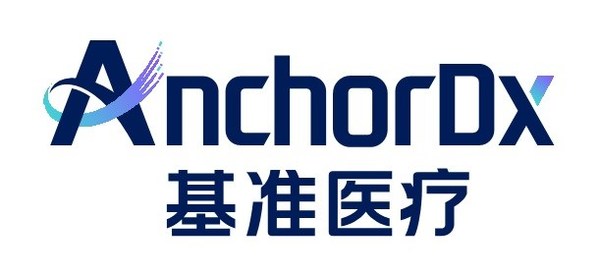 |
GUANGZHOU, China, Dec. 9, 2021 /PRNewswire/ — AnchorDx, a world-leading developer of cancer screening and early detection solutions, was accepted on December 1, 2021, to present its “Noninvasive Lung Cancer Early Detection via Deep Methylation Representation Learning” research paper (DeepMeth) at the 36th AAAI Conference on Artificial Intelligence (AAAI-22) next year in Vancouver. Submitted jointly by AnchorDx and Nankai University’s Advanced Medical Data Research Center, the paper was one of a record 9,251 submissions. The AAAI’22 received with 9020 reviewed and only 1,349 papers accepted, giving an overall acceptance rate of just 15%, the lowest in the AAAI’s history.
DeepMeth is the one of the world’s first ever studies to represent methylation regions by continuous vectors based on deep-learning. It is also the core algorithm of AnchorDx’s lung cancer early diagnosis product, PulmoSeek™ Plus. As an integrated diagnostic model combining methylation tests with LDCT imaging artificial intelligence (AI), PulmoSeek™ Plus could help facilitate the accurate diagnosis of early-stage lung cancer in pulmonary nodule patients and guide clinical decisions. DeepMeth standing out from almost ten thousand research papers displays a high appreciation and validation by the global artificial intelligence community for the company’s achievements in cancer early detection. It is also a breakthrough on the optimism that the convergence of AI and precision medicine promises in health care.
In addition, back to April this year, AnchorDx’s research paper on its blood-based lung cancer early diagnosis methylation model, PulmoSeek™, had already been published in The Journal of Clinical Investigation. These two high recognitions further demonstrate the company’s leading global position in the early detection of lung cancer.
Breaking the bottleneck of ctDNA methylation early detection of cancer
Circulating tumor DNA (ctDNA) methylation in blood is noninvasive, cost-effective and offers organizational traceability, making it valuable for the early detection of cancers. Thus, ctDNA methylation analyses is one of the most promising methods for the early detection of lung cancer. However, trace abundance of ctDNA in plasma has always been a technical challenge in early cancer detection. The Department of Computer Science at Nankai University and AnchorDx have been working collaboratively to overcome this challenge for years to develop a novel deep learning model — DeepMeth — which represents each ctDNA methylation sample by concatenating the region vectors.
Unlike previous studies, DeepMeth for the first time focused on co-methylation pattern information within the region instead of methylated sites in a region. Considering each methylation region independently and developing an autoencoder to learn CpG-rich semantics, for example, positions of methylated CpG sites, hidden in region layouts, DeepMeth can largely avoid the curse of dimensionality.
DeepMeth has been validated through extensive experiments on a clinical dataset collected from 14 hospitals. The experiments show that DeepMeth outperforms four state-of-the-art baselines in terms of AUC. In addition, it has also been demonstrated that DeepMeth can be combined with traditional metrics to enhance prediction performance. It is encouraging that since April 2020, DeepMeth-based PulmoSeek™ Plus has been clinically applied to patients from 94 hospitals for early lung cancer detection and has presented satisfactory performance.
About AnchorDx
Founded in 2015, AnchorDx is a world-leading developer of cancer screening and early detection solutions based on methylation NGS technology. AnchorDx strives to revolutionize single/multi/pan-cancer early screening, detection technologies, and products. The current product pipeline encompasses more than 70% of all cancers. In addition, AnchorDx has a proprietary database and artificial intelligence platform designed for early lung cancer screening, diagnosis, and treatment.
About AAAI and AAAI Conference
The Association for the Advancement of Artificial Intelligence (AAAI) is an international scientific society devoted to promoting research in, and the responsible use of, artificial intelligence. The organization was founded in 1979 by Turing Award winners Marvin Minsky and John McCarthy. The annual AAAI Conference is the world’s top academic conference in the field of artificial intelligence, and it is also a category A conference designated by the China Computer Federation (CCF). AAAI is the leading scientific society for artificial intelligence (AI), with more than 200 elected Fellows and over 6,000 members. AAAI Fellows are known as the “Hall of Fame”, and includes the two latest Turing Award winners, deep learning pioneers, Yoshua Bengio and Yann LeCun.

